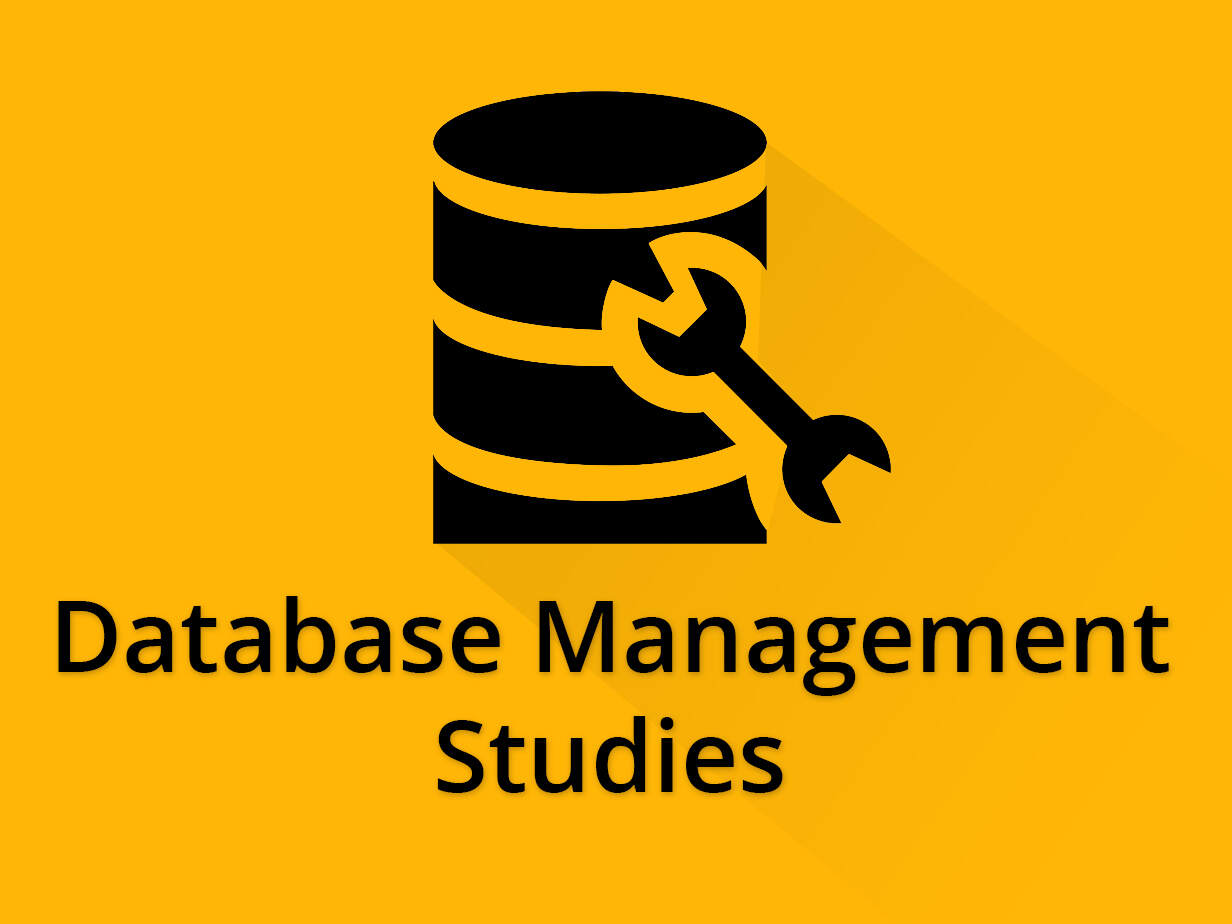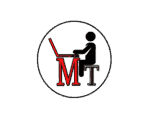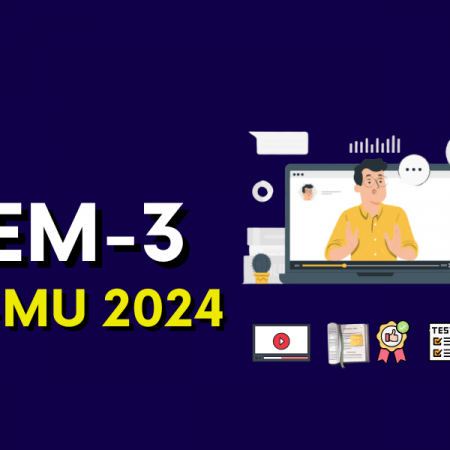Database Management System (DBMS)

-
ABOUT THE COURSE
-
Description
What you’ll Learn:
Data modelling using the entity-relationship and developing database designs.
Use of Structured Query Language (SQL) and learn SQL syntax.
Apply normalization techniques to normalize the database
Understand the needs of database processing and learn techniques for controlling the consequences of concurrent data access.
Description:
This course provides starting from the roots, the fundamentals of a database systems thereby learning to design Design and draw ER and EER diagram for the real life scenario. Converting conceptual model to relational model and formulate relational algebra queries. Talking to our very own database using SQL!!
Learning query optimization techniques like normalization and lastly dealing with transaction, concurrency & recovery.
Join in to learn Database Management System, equally important from the academic as well as real-world knowledge.
Modules Covered:
Introduction to Database Concepts
Entity-Relationship data Model
Relational Model and relational Algebra
Structured Query Language (SQL)
Relational Database Design
Transactions Management and Concurrency. -
Module 1 - Introduction Database Concepts
-
Module 2 - Entity–Relationship Data Model
-
Module 3 - Relational Model and relational Algebr
-
Module 4 - Structured Query Language (SQL)
- Introduction to SQL
- Data definition language
- DML ( data manipulation language )
- DRL ( Data Retrieval Language)
- Aggregate Function in SQL
- SQL Inner Joins & Left join
- SQL Right Join & Full Join
- DBMS Importance with complete strategy for Mumbai Universality
- Types of Joins in SQL
- B+ Tree Indexing
- Search and Expression Equivalance
- Indexing
- PL SQL | part 1 |
- PL SQL | part 2 |
- Query Processing And Query Optimisation [Part 1]
- Query Processing And Query Optimisation [Part 2]
- Query Processing And Query Optimisation [Part 3]
- Query Processing And Query Optimisation [Part41]
- Integrity Constraints
- Trigger
- Data Independence
-
Module 5 - Relational-Database Design
-
Module 6 - Transactions Management and Concurrence
- Concurrency Control
- Concurrency Control – Lock Based Protocol in DBMS Transaction
- Timestamp Based Protocol
- Deadlock Full concept in DBMS transaction management
- Shadow Paging in Database Recovery
- Log Based Database Recovery
- Shadow Copy Technique in Database recovery
- Transaction State and Acid Properties
- Transaction Schedule
- View Serializability
- Conflict Serializability
Database Management Systems (DBMS)
Tutor: Aayush Soni
Database Management System (DBMS) is semester 5 subject of final year of computer engineering in Mumbai University. Prerequisite for studying this subject are Basic knowledge of Data structure.
Course objectives for subject Database Management System Learn and practice data modelling using the entity-relationship and developing database designs. Understand the use of Structured Query Language (SQL) and learn SQL syntax. Apply normalization techniques to normalize the database. Understand the needs of database processing and learn techniques for controlling the consequences of concurrent data access. Course outcomes for subject Database Management System On successful completion of course learner will be able to: Understand the fundamentals of a database systems. Design and draw ER and EER diagram for the real life problem. Convert conceptual model to relational model and formulate relational algebra queries.Design and querying database using SQL. Analyze and apply concepts of normalization to relational database design. Understand the concept of transaction, concurrency and recovery.
A database is an organized collection of data, generally stored and accessed electronically from a computer system. Where databases are more complex they are often developed using formal design and modeling techniques. The database management system (DBMS) is the software that interacts with end users, applications, and the database itself to capture and analyze the data. The DBMS software additionally encompasses the core facilities provided to administer the database. The sum total of the database, the DBMS and the associated applications can be referred to as a “database system”. Often the term “database” is also used to loosely refer to any of the DBMS, the database system or an application associated with the database. Computer scientists may classify database-management systems according to the database models that they support. Relational databases became dominant in the 1980s. These model data as rows and columns in a series of tables, and the vast majority use SQL for writing and querying data. In the 2000s, non-relational databases became popular, referred to as NoSQL because they use different query languages.
Module Introduction Database Concepts consists of the following subtopics introduction, Characteristics of databases, File system v/s Database system, Users of Database system , Data Independence ,DBMS system architecture, Database Administrator. Module Entity Relationship Data Model consists of the following subtopics The Entity-Relationship (ER) Model: Entity types Weak and strong entity sets, Entity sets, Types of Attributes, Keys, Relationship constraints : Cardinality and Participation, Extended Entity-Relationship (EER) Model : Generalization, Specialization and Aggregation. Module Relational Model and relational Algebra consists of the following subtopics Introduction to the Relational Model, relational schema and concept of keys. Mapping the ER and EER Model to the Relational Model .Relational Algebra – unary and set operations, Relational Algebra Queries. Module Structured Query Language (SQL) consists of the following subtopics Overview of SQL, Data Definition Commands, Data Manipulation commands, Data Control commands, Transaction Control Commands. Set and string operations, aggregate function – group by, having. Views in SQL, joins , Nested and complex queries, Integrity constraints :-key constraints, Domain Constraints, Referential integrity , check constraints, Triggers. Module Relational–Database Design consists of the following subtopics Pitfalls in Relational-Database designs , Concept of normalization Function Dependencies , First Normal Form, 2nd , 3rd , BCNF, multi valued dependencies , 4NF. Module Transactions Management and Concurrency consists of the following subtopics Transaction concept, Transaction states, ACID properties. Concurrent Executions, Serializability – Conflict and View, Concurrency Control: Lock-based, Timestamp-based protocols. Recovery System: Failure Classification, Log based recovery, ARIES, Checkpoint, Shadow paging. Deadlock handling.
Suggested Texts Books for Database Management System by Mumbai University are as follows G. K. Gupta Database Management Systems, McGraw Hill. Korth, Slberchatz,Sudarshan, Database System Concepts, 6th Edition, McGraw Hill Elmasri and Navathe, Fundamentals of Database Systems, 5th Edition, Pearson education. Peter Rob and Carlos Coronel, Database Systems Design, Implementation and Management, Thomson Learning, 5th Edition. Suggested Reference book for Database Management System by Mumbai University are as follows Dr. P.S. Deshpande, SQL and PL/SQL for Oracle 10g, Black Book, Dreamtech Press. Gillenson, Paulraj Ponniah, Introduction to Database Management, Wiley Publication. Sharaman Shah, Oracle for Professional, SPD. Raghu Ramkrishnan and Johannes Gehrke, Database Management Systems ,TMH.
What you’ll Learn:
- Data modelling using the entity-relationship and developing database designs.
- Use of Structured Query Language (SQL) and learn SQL syntax.
- Apply normalization techniques to normalize the database
- Understand the needs of database processing and learn techniques for controlling the consequences of concurrent data access.
Description:
This course provides starting from the roots, the fundamentals of a database systems thereby learning to design Design and draw ER and EER diagram for the real life scenario. Converting conceptual model to relational model and formulate relational algebra queries. Talking to our very own database using SQL!!
Learning query optimization techniques like normalization and lastly dealing with transaction, concurrency & recovery.
Join in to learn Database Management System, equally important from the academic as well as real-world knowledge.
Modules Covered:
- Introduction to Database Concepts
- Entity-Relationship data Model
- Relational Model and relational Algebra
- Structured Query Language (SQL)
- Relational Database Design
- Transactions Management and Concurrency.
Feel forward to have a look at course description and demo videos and we look forward to see you learning with us.
Prepare For Your Placements: https://lastmomenttuitions.com/courses/placement-preparation/
![]()
/ Youtube Channel: https://www.youtube.com/channel/UCGFNZxMqKLsqWERX_N2f08Q
Follow For Latest Updates, Study Tips & More Content!
Course Features
- Lectures 51
- Quizzes 0
- Skill level All levels
- Language Hindi
- Students 2951
- Certificate No
- Assessments Yes
-
Snehai
Sneha indulkar
Your to good bruh. Your teaching skills are awsome. Friendly environment plus concept wise teaching no ratta method is required. Thank you


